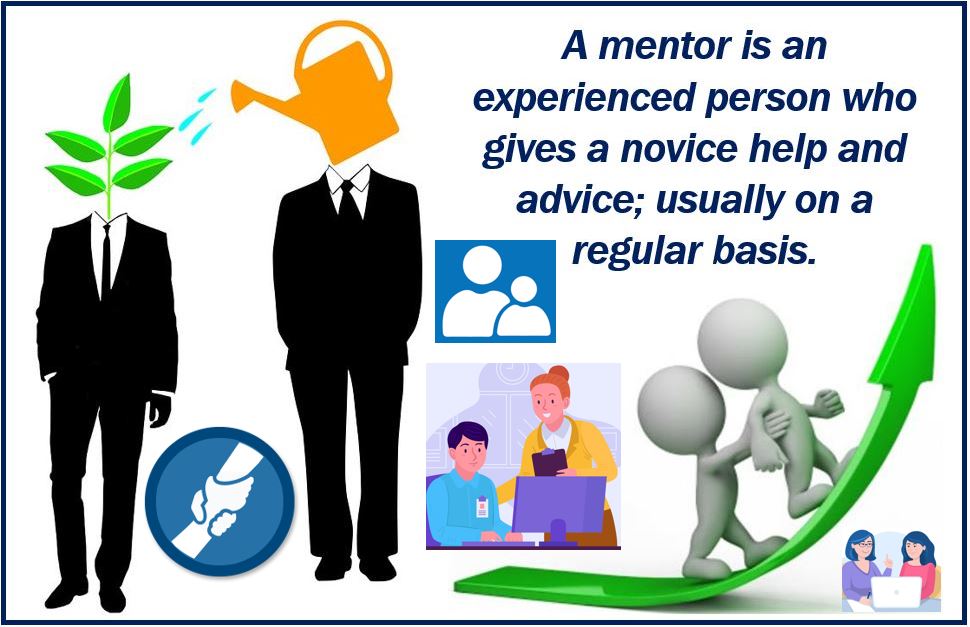Leadership is a skill that must be developed. No one enters the business world knowing exactly how to run a company or how to manage employees. Experienced employees have valuable skills that can help their younger colleagues solve problems and bring their companies greater success.
Mentorship is one of the best ways for a younger employee to receive the knowledge they need to move up in a company. Being mentored can teach crucial lessons about leadership and work-life balance.

Paul Garibotti, the founder and CEO of Northfleet Concrete Floors, encourages mentor relationships between his employees. His focus on skill-building and information sharing is shown in his company’s motto, “Our strength is our people.” Taking employee development seriously is an important part of the company’s success.
Paul Garibotti explains the seven things that all leaders should know and how mentorship can enhance leaders’ skill sets.
1. Company Culture is Important
Company culture is defined as the unspoken code of conduct that governs employees’ and leaders’ actions. Without a strong and positive company culture, businesses may find that they are dealing with negative and unmotivated employees. Good leaders know that they have to encourage company culture to flourish.
One of the most important aspects of bringing company culture to life is making your values the company’s values. If you behave in the way you want your employees to behave, you will be far more likely to see the results you want.
Business leaders should not subscribe to the notion that rules are for lower-ranking people. Everyone’s interactions in a company should be respectful and constructive.
A mentor can be a huge help in setting up a strong and vibrant company culture. Running a business is easier when there is a more experienced helper at the ready.
2. Trust is Key
Business leaders must be trustworthy. This plays into large and small decisions. A mentor can model trustworthiness as well as giving advice on how to handle difficult situations in the workplace. A good mentor will be honest with their mentee and let them know whether their perceived lack of trust is hampering their business.
3. Creating Goals is a Must
An experienced mentor can help a leader set goals for the business. Goal-setting is one of the most valuable activities for a leader, creating a sense of direction for the company. Looking at the company’s strengths and weaknesses, a mentor can make suggestions for big and small goals that a business should be able to accomplish.
4. Developing Teaching Skills Helps Everyone
Effective leaders are able to guide employees to reach their goals, but they can also show them the best ways to do so. Every great leader is an educator and their attitude toward teaching their employees makes a difference in their effectiveness.
Mentors teach lessons that mentees can apply to their own employees. In this way, business knowledge is passed down and skills and traditions are not lost.
5. Rewarding Positive Behavior is Important
Every leader needs to know how to motivate their employees. Most employees work better when they are appreciated. It doesn’t necessarily have to be a monetary bonus or a valuable gift. Sometimes a simple letter or card is enough to show an employee that their special efforts have been recognized. Leaders can also reward employees with more privileges at work, like a special parking place, or with professional recognition at a conference or event.
Mentors can help leaders decide which rewards are the most effective for different types of employees. They can also encourage leaders to think about rewarding their employees in new ways.
6. Self-Care Shouldn’t Be Overlooked
The most successful business leaders know that they must take time to rest and refresh themselves if they want to be effective in their jobs. People who are burned-out make poor managers. A mentor can encourage a leader to take a break and to allow their employees to do so as well. For example, a company culture where taking vacation days is discouraged will have negative consequences.
7. Embracing Change Works for Everyone
The most effective business leaders know that no company can remain stagnant. Sometimes changes are gradual and sometimes they are startling, as it is when an important person in the company suddenly leaves their job. A mentor can help a leader know which changes are positive and which need to be addressed. Having an open-minded perspective helps.
Mentors and Leadership
The mentor relationship is complex and holds benefits for both parties. Mentors may receive helpful, up-to-date information about their fields, and they may take a page from their mentees’ book when it comes to handling problems in a new way.
Northfleet Concrete Floors encourages mentor relationships between its employees. Mentors can help to teach these seven business lessons as well as many others. If an employee is ready to accept a mentor’s help, both parties can learn a great deal from their relationship. Mentorship also benefits the more experienced person by helping them keep their skills up-to-date.
When businesses encourage mentorship, they foster an atmosphere of information-sharing and collaboration that greatly enhances company culture.
Interesting related article: “What is Training?“

